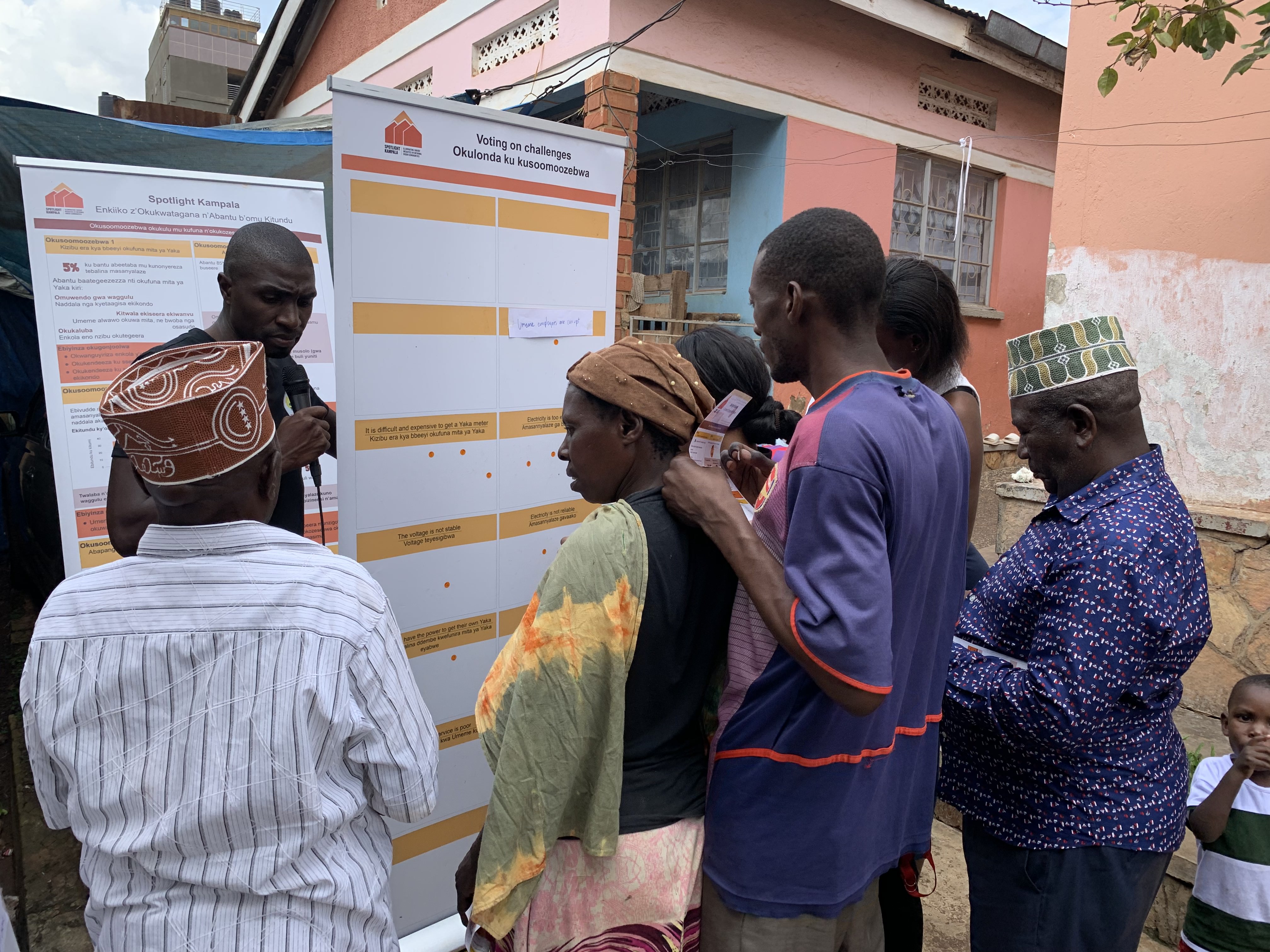Spotlight Kampala is a multi-institutional research collaboration of universities and community advocates that aims to highlight the inequities that informal urban communities face in accessing and using electricity. This report presents the findings of eight months of data collection that included surveys, interviews, remote power quality monitoring, infrastructure mapping, and community forums across 25 of Kampala’s approximately 60 informal communities. This research aims not only to provide baseline statistics on important dimensions of access like access rates, affordability, supply reliability and quality, but also to ground these learnings in the daily lived experience of Kampala’s informal residents. In doing so, the research teams hope to bridge the divide between researchers and policymakers by providing data that is action-oriented, and can catalyze further action of duty-bearers to find solutions to alleviate urban energy poverty for Kampala’s informal communities.
This report details the findings and recommendations which emerged from the research team’s collective work to characterize and address inequalities in electricity access in informal communities in Kampala. Although 95% of households and businesses are connected to the electricity grid in some way, the findings show clearly that a connection is not equivalent to electricity access. A number of barriers remain which prevent consumers from using electricity in ways that promise to improve their health, livelihoods, and overall well-being. For many, the conditions of energy access fall short of SDG 7.
